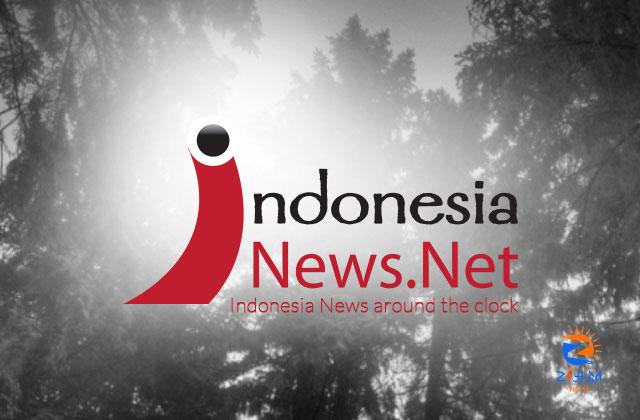
[ad_1]
Baby formula manufacturers have a history of aggressive marketing and exploiting women’s anxieties to wean them off breastfeeding.
There is a breastfeeding crisis unfolding in Indonesia that results in the deaths of thousands of toddlers and mothers each year.
Fewer mums are breastfeeding according to World Health Organization recommendations and this steep decline, combined with a surge in the use of commercially manufactured milk formula, is being blamed.
Data from the 2022 Indonesia Nutrition Status Survey reveals a dramatic decline in breastfeeding rates, from 48.2 percent in 2021 to just 16.7 percent in 2022. Formula feeding, however, surged from 45.2 percent in 2021 to 61.6 percent in 2022.
While further research is needed to solidify the connection, the data suggests a correlation between aggressive formula marketing and the decline in breastfeeding.
This shift is linked to exploitative marketing tactics by milk formula manufacturers who use social media influencers to promote their products, systematically engaging doctors, midwives, and their health institutions in different marketing activities, playing on women’s anxieties and self-doubt of making enough breast milk, to using unsubstantiated health and nutritional claims on their formula ads.
The milk formula industry generates about USD$55 billion in annual revenue globally, according to a WHO report.
With a population of 3.38 million infants and 18 million young children, Indonesia’s market for milk formula generates around USD$5.1 billion and is projected to reach USD$15.4 billion by 2030.
Such marketing also shifts infant and young child feeding practices away from breastfeeding towards commercially manufactured milk formula feeding.
For example, during the first two years of the COVID pandemic, the formula industry disproportionately targeted women, exerting influence over their infant feeding choices through direct and indirect means via doctors and government agencies.
Sales people directly reached out to pregnant women and mothers with infants or young children through private messaging on social media like Instagram, Facebook, WhatsApp, text messages, and phone calls.
They offered a discounted product to buy or recommend the use of a specific formula product. They also invited mothers to join a series of online sessions covering numerous maternal and child health-related topics, including pregnancy, infant feeding and nutrition and other COVID-19 child health-related topics.
Maternal and child health has been heavily exploited for decades by commercial interests. Social media has intensified this exploitation.
The big multinational milk formula companies continuously do their best to replace breastfeeding and culturally appropriate complementary feeding practices by exposing women to myriad formula products lacking sufficient evidence, tailored for every stage of their lives, from maternal, infant (for infants ages 0-6), follow-on (6-12 months), toddler (12-24 months), and growing-up (more than 24 months) milk formula.
Despite contravening the International Code of Marketing of Breastmilk Substitutes, sales representatives from these companies continue to have direct contact with women, fostering relationships with the aim of fostering dependency on their products in efforts to maintain product sales.
It typically begins with identifying first-time pregnant women, followed by sustained faux relationships until the child reaches an age where the company’s product is no longer relevant to mother and child.
This exploitation of women’s emotions, which capitalises on their fears and insecurities, was also a common tactic before, during, and after the pandemic.
Companies routinely claim that their products can solve common infant problems, whether real or perceived, out of common infant behaviours like crying or tiredness; companies position their products as solutions, suggesting that breastmilk alone may not suffice.
The WHO report reveals that while many women express the intention to breastfeed; a barrage of strategic and persuasive marketing messages, such as exploiting the historical perception of breasts primarily as sexual objects, while downplaying their nurturing function, undermine their confidence.
Women vs formula industry
Breastfeeding poses a hurdle for business interests because breastmilk is a powerful competitor of commercial milk formulas. The more women breastfeed, the lower formula and baby food sales will be.
To combat this the milk formula industry often uses poor science to suggest women and the wider public, with unsubstantiated evidence, that their products offer solutions to common infant health and developmental issues in competition with women breast milk.
It’s also evident that breastfeeding not only plays a crucial role in child survival but also offers women protection against breast cancer, contributes to improved birth spacing, and may also reduce the risk of ovarian cancer and type 2 diabetes.
In fact, human breast milk is the best food for babies. Unlike milk formula, human breast milk contains antibodies that provide crucial protection against numerous common illnesses, making it essential for the children’s survival and well-being.
The WHO recommends exclusive breastfeeding for the first six months of life, followed by continued breastfeeding alongside introducing appropriate complementary foods until the child reaches two years of age or older. This aligns with the 2030 Sustainable Development Goals.
If the Indonesian government fully adopts the code and strengthens milk formula marketing regulations, women, infants, and young children would be protected from unethical and exploitative marketing of milk formula. This could result in a sustained increase in breastfeeding, which is crucial in preventing stunting and other malnutrition problems.
Irma Hidayana is an Assistant Professor at the School of Health Professions and Human Services in the Department of Population Health, Hofstra University, New York, USA. She is the founder of https://pelanggarankode.org/ on the unethical marketing of the milk formula industry and its affiliates.
Originally published under Creative Commons by 360info.
The post How an industry milks mothers’ fears for profit. appeared first on 360.
[ad_2]